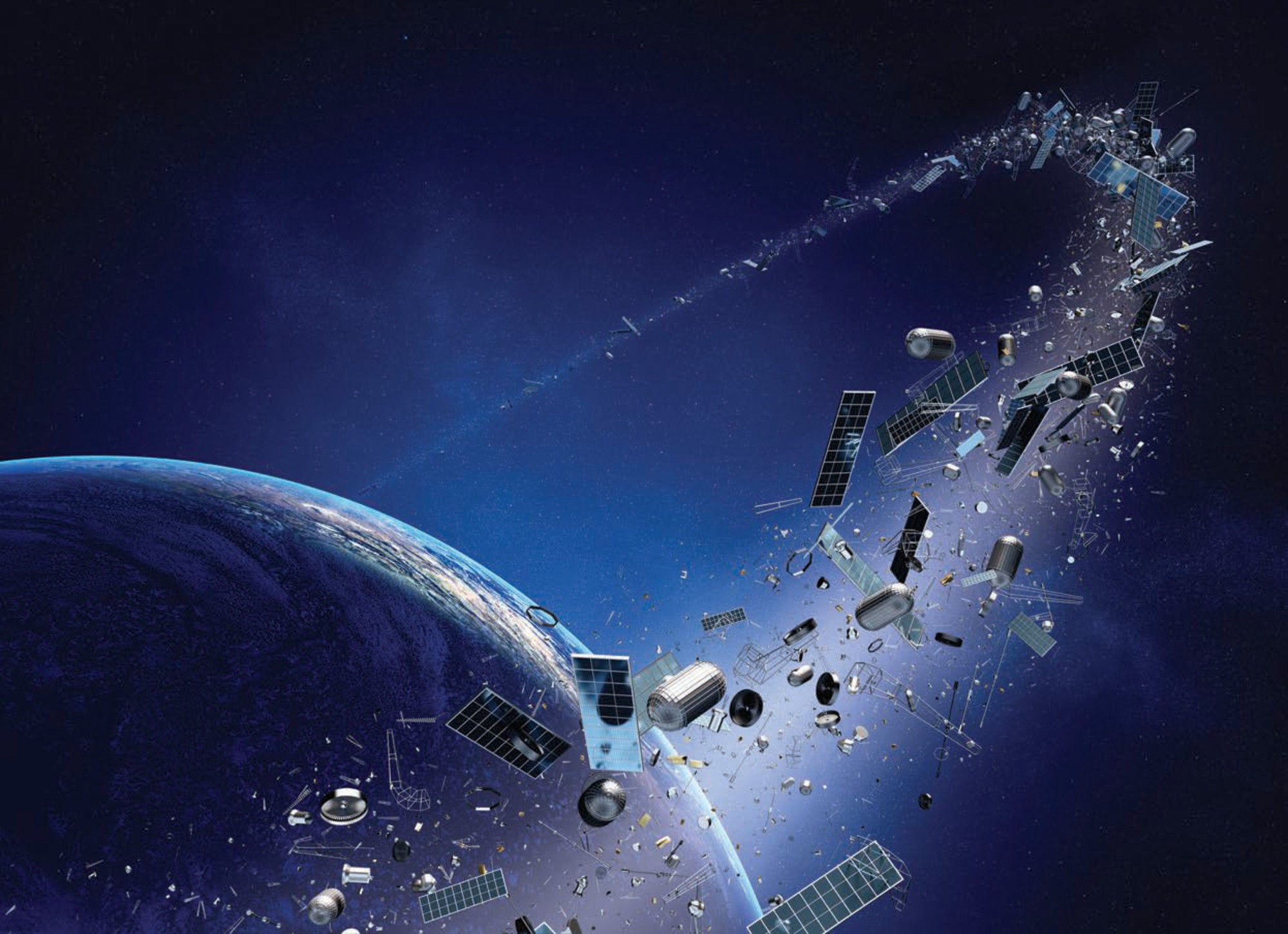[4] Adilov, N., P. Alexander and B. Cunningham (2018), “An economic “Kessler Syndrome”: A dynamic model of Earth orbit debris”, Economic Letters, Vol. 166, pp. 79-82, https://doi.org/10.1016/j.econlet.2018.02.025.
[6] Adilov, N., P. Alexander and B. Cunningham (2015), “An economic analysis of Earth orbit pollution”, Environmental and Resource Economics, Vol. 60/1, pp. 81-98, https://doi.org/10.1007/s10640-013-9758-4.
[19] Alfano, S. and D. Oltrogge (2018), “Probability of collision: Valuation, variability, visualisation, and validity”, Acta Astronautica, Vol. 148, pp. 301-316, https://doi.org/10.1016/j.actaastro.2018.04.023.
[11] Ateca-Amestoy, V. et al. (2021), “Network under H2020 space and knowledge diffusion”, UPV/EHU mimeo.
[22] Ateca-Amestoy, V. et al. (2020), “Contributions to the European Space Agency”, UPV/EHU mimeo.
[7] Béal, S., M. Deschamps and H. Moulin (2020), “Taxing congestion of the space commons”, Acta Astronautica, Vol. 177, pp. 313-319, https://doi.org/10.1016/j.actaastro.2020.07.036.
[14] Diserens, S., H. Lewis and J. Fliege (2020), “NewSpace and its implications for space debris models”, Journal of Space Safety Engineering, Vol. 7/4, pp. 502-509, https://doi.org/10.1016/j.jsse.2020.07.027.
[12] Eiriz, I. (2021), An Economic Analysis of the European Space Economy, Doctoral dissertation, University of the Basque Country UPV/EHU, https://addi.ehu.es/bitstream/handle/10810/51145/TESIS_IGNACIO_MAR%C3%8DA_EIRIZ_GERVAS.pdf?sequence=1.
[16] Euroconsult (2019), “Socio-economic impact assessment of selected ESA telecommunication Partnership Projects”, Study commissioned by the European Space Agency, https://esamultimedia.esa.int/docs/business_with_esa/SEI_ARTES_PPP_Executive_Summary.pdf (accessed on 6 May 2022).
[13] Giannopapa, C. et al. (2018), “Elements of ESA’s policy on space and security”, Acta Astronautica, Vol. 147, pp. 346-349, https://doi.org/10.1016/j.actaastro.2018.02.044.
[5] Grzelka, Z. and J. Wagner (2019), “Managing satellite debris in low-Earth orbit: Incentivizing ex ante satellite quality and ex post take-back programs”, Environmental and Resource Economics, Vol. 74/1, pp. 319-336, https://doi.org/10.1007/s10640-019-00320-3.
[21] International Interdisciplinary Space Debris Congress (2012), “Active debris removal — an essential mechanism for ensuring the safety and sustainability of outer space”, Presented at the 49th session of the UN COPUOS, Scientific and Technical Subcommittee, https://www.unoosa.org/pdf/limited/c1/AC105_C1_2012_CRP16E.pdf (accessed on 6 May 2022).
[20] Kumar, B., D. De Remer and D. Marshall (2005), An Illustrated Dictionary of Aviation, McGraw-Hill, New York, NY.
[8] Macauley, M. (2015), “The economics of space debris: Estimating the costs and benefits of debris mitigation”, Acta Astronautica, Vol. 115, pp. 160-164, https://doi.org/10.1016/j.actaastro.2015.05.006.
[17] Patera, R. (2001), “General method for calculating satellite collision probability”, Journal of Guidance, Control, and Dynamics, Vol. 24/4, pp. 716-722, https://doi.org/10.2514/2.4771.
[9] Rao, A., M. Burgess and D. Kaffine (2020), “Orbital-use fees could more than quadruple the value of the space industry”, Proceedings of the National Academy of Sciences, Vol. 117/23, pp. 12756-12762, https://doi.org/10.1073/pnas.1921260117.
[10] Rouillon, S. (2020), “A physico-economic model of low-Earth orbit management”, Environmental and Resource Economics, Vol. 77/4, pp. 695-723, https://doi.org/10.1007/s10640-020-00515-z.
[2] Salter, A. (2016), “Space debris: A law and economics analysis of the orbital commons”, Stanford Technology Law Review, Vol. 19, pp. 221-238, https://law.stanford.edu/publications/space-debris-a-law-and-economics-analysis-of-the-orbital-commons.
[1] Sandler, T. (2004), Global Collective Action, Cambridge University Press.
[3] Undseth, M., C. Jolly and M. Olivari (2021), “The economics of space debris in perspective”, Proceedings of the 8th European Conference on Space Debris, https://conference.sdo.esoc.esa.int/proceedings/sdc8/paper/12/SDC8-paper12.pdf.
[18] Undseth, M., C. Jolly and M. Olivari (2020), “Space sustainability: The economics of space debris in perspective”, OECD Science, Technology and Industry Policy Papers, No. 87, OECD Publishing, Paris, https://doi.org/10.1787/a339de43-en.



